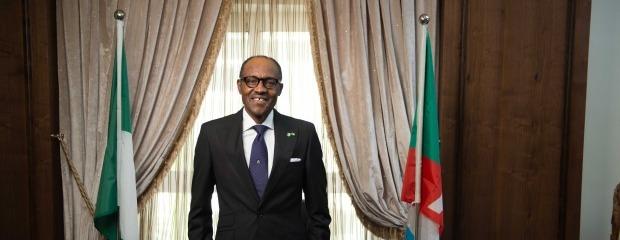Buhari’s Tough Challenge in Nigeria – By Nnamdi Obasi

When Muhammadu Buhari assumes office as Nigeria’s president on 29 May, he will take the reins of a country in serious distress. Insecurity poses a towering challenge, the economy is in dire straits, and corruption and impunity are rife. Buhari, who won the election on the promise of change, must now urgently make good on that promise, starting by rallying Nigerians around that which they have lost: a common vision for the future.
The killings by the radical Islamist Boko Haram may have ebbed following recent offensives by forces from Nigeria and its neighbours, but the insurgency is not yet ended. Over the last four years, the group has killed at least 16,000 people, displaced over 1.5 million and laid waste to many communities in the north east. The country is also plagued by diverse lower-intensity conflicts and unacceptable levels of criminal violence.
The economy has slumped over the past year, following an over 50 per cent plunge in the price of crude oil whose export accounts for over 70 per cent of government’s revenue. Economic growth slowed to 4.6 per cent in the first quarter of this year, down from 6.2 percent in the first quarter of 2014. In recent months, the federal government has had to borrow just to pay workers. Eighteen of the 36 state governments currently owe employees back pay, some for up to nine months.
Infrastructure is in disrepair, and public utilities are hopelessly unreliable. Last week, electricity generation dropped to an unprecedented low of 1,327 megawatts for Nigeria’s 180 million people, compared to 44,175 megawatts generated for South Africa’s 51 million people. During this inauguration week, acute scarcity of refined petroleum products has created miles-long queues of vehicles outside filling stations, grounded numerous flights, and seriously damaged commercial life. Unemployment remains pervasive: officially 22 million are jobless, but many believe the real figure is much higher. The country still has 10.5 million out-of-school children – the world’s highest number – many of whom may be future candidates for insurgency and organized crime.
Corruption and economic crimes have brought the country to the verge of bankruptcy. Crude oil is stolen on an industrial scale. The chief of Nigeria’s navy, Vice Admiral Usman Jibrin, recently estimated that $2.18 billion worth of petroleum is siphoned off annually. The proceeds could fuel a new phase of violence in the oil-rich Niger Delta.
Early statements by Buhari and his transitional team suggest keen awareness of the gravity of the crises and some urgency toward engaging with them. Yet Buhari’s first task must be to persuade all Nigerians that he is president for the entire country and rally them around a common vision for the future. Although the recent elections ended without the widely feared violent protests, the campaign before it revealed a country deeply fractured along regional, religious and ethnic lines. The latent contradictions and gaping discontent, between and even within major interest groups, threaten to frustrate even the most well-meaning plans for progress.
Buhari, who is from northern Katsina state, needs to constitute a competent but also inclusive government, with credible representation from all major regional, ethnic and religious blocs. More importantly, the new government must devote great efforts to policies and programs that will address major grievances, reconcile differences, build social cohesion and provide better security against the likes of Boko Haram. It also needs to engage positively with states where the outgoing People’s Democratic Party (PDP) won, particularly in the Niger Delta, where longstanding economic and environmental grievances have been aggravated by the ousting of the first-ever president from the region (Goodluck Jonathan) after only one term.
In seeking to reconcile, stabilise, secure and revitalise the country, the administration will need all the support and assistance it can get from international partners, including African countries. Such assistance should include military training and equipment, intelligence sharing, humanitarian support in the north east, bridging loans, technical assistance and bilateral cooperation in tracking corrupt proceeds. Investments toward security and stability could greatly benefit not only Nigeria, but indeed the entire Africa region. Support in deepening democracy in Nigeria could also have positive spillover effects on democracy across Africa.
If Buhari succeeds in delivering on his promise of change, he will have achieved a historic reversal of Nigeria’s long slide toward degradation. If he fails, the country will slide deeper into ruin. The stakes could not be higher.
Nnamdi Obasi is Senior Analyst, Nigeria, for International Crisis Group, the independent conflict-prevention organisation.






